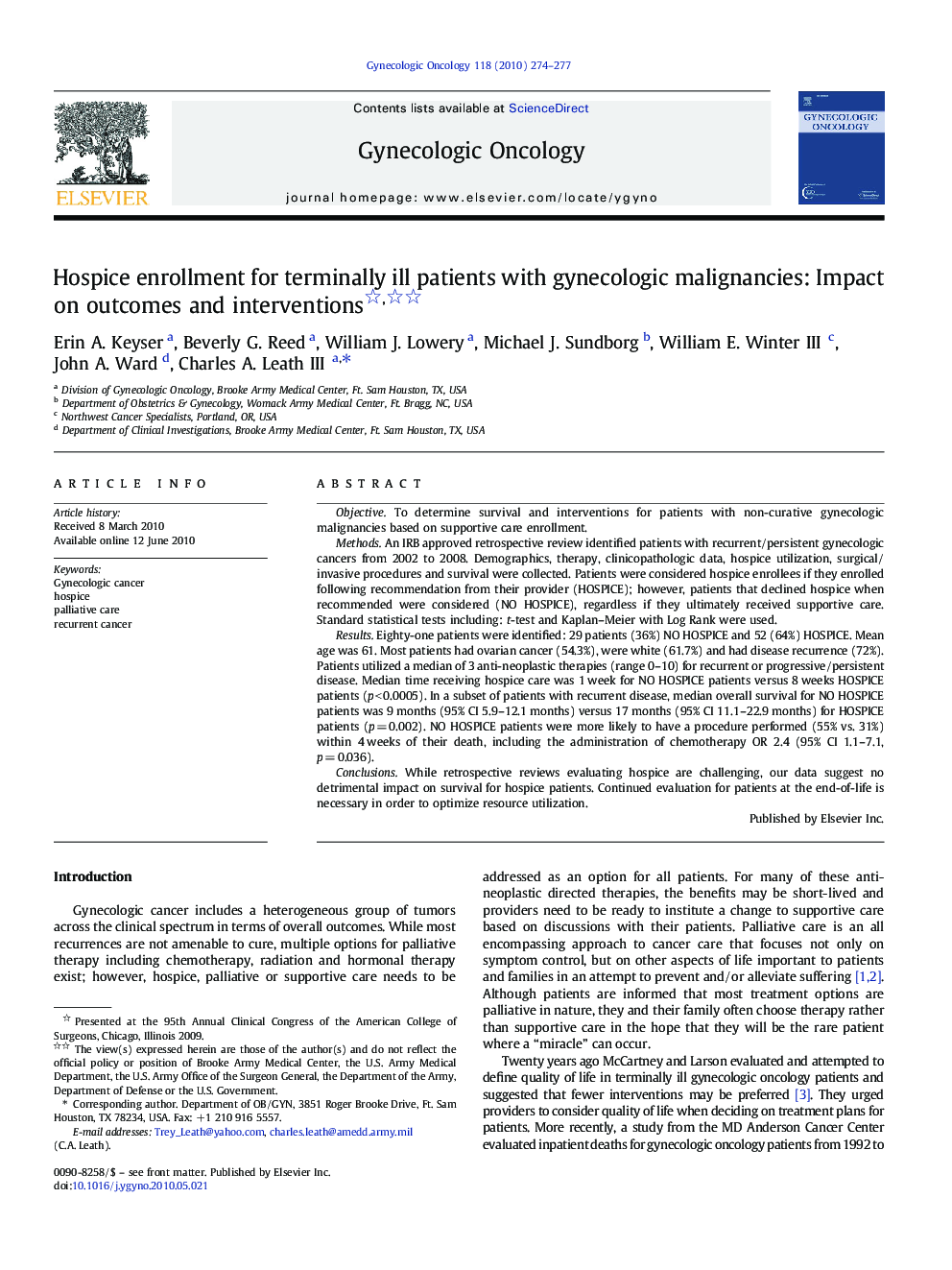| کد مقاله | کد نشریه | سال انتشار | مقاله انگلیسی | نسخه تمام متن |
|---|---|---|---|---|
| 3945608 | 1254277 | 2010 | 4 صفحه PDF | دانلود رایگان |

ObjectiveTo determine survival and interventions for patients with non-curative gynecologic malignancies based on supportive care enrollment.MethodsAn IRB approved retrospective review identified patients with recurrent/persistent gynecologic cancers from 2002 to 2008. Demographics, therapy, clinicopathologic data, hospice utilization, surgical/invasive procedures and survival were collected. Patients were considered hospice enrollees if they enrolled following recommendation from their provider (HOSPICE); however, patients that declined hospice when recommended were considered (NO HOSPICE), regardless if they ultimately received supportive care. Standard statistical tests including: t-test and Kaplan–Meier with Log Rank were used.ResultsEighty-one patients were identified: 29 patients (36%) NO HOSPICE and 52 (64%) HOSPICE. Mean age was 61. Most patients had ovarian cancer (54.3%), were white (61.7%) and had disease recurrence (72%). Patients utilized a median of 3 anti-neoplastic therapies (range 0–10) for recurrent or progressive/persistent disease. Median time receiving hospice care was 1 week for NO HOSPICE patients versus 8 weeks HOSPICE patients (p < 0.0005). In a subset of patients with recurrent disease, median overall survival for NO HOSPICE patients was 9 months (95% CI 5.9–12.1 months) versus 17 months (95% CI 11.1–22.9 months) for HOSPICE patients (p = 0.002). NO HOSPICE patients were more likely to have a procedure performed (55% vs. 31%) within 4 weeks of their death, including the administration of chemotherapy OR 2.4 (95% CI 1.1–7.1, p = 0.036).ConclusionsWhile retrospective reviews evaluating hospice are challenging, our data suggest no detrimental impact on survival for hospice patients. Continued evaluation for patients at the end-of-life is necessary in order to optimize resource utilization.
Journal: Gynecologic Oncology - Volume 118, Issue 3, September 2010, Pages 274–277